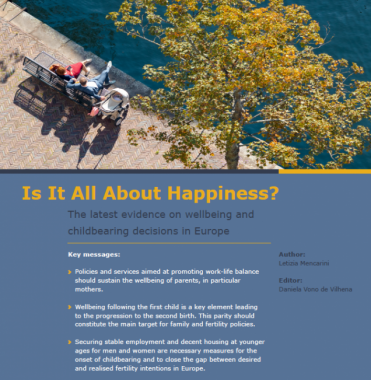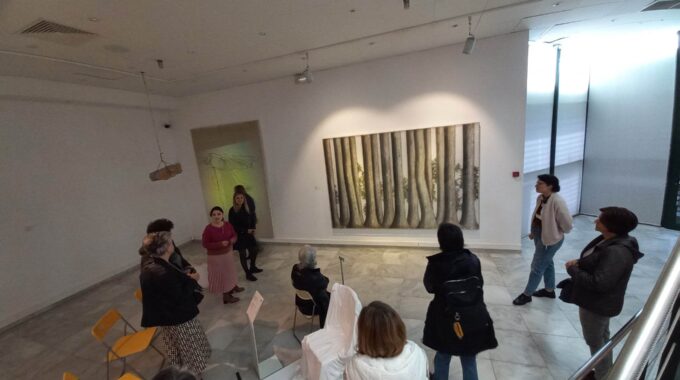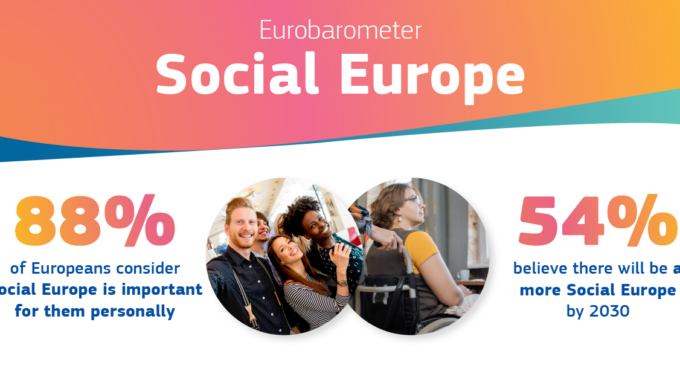
Is It All About Happiness? The latest evidence on wellbeing and childbearing decisions in Europe
9.
Offer European Youth a perspective, offer them a job placement via the European Solidarity Corps!
18.
Is It All About Happiness? The latest evidence on wellbeing and childbearing decisions in Europe
Author: Letizia Mencarini Editor: Daniela Vono de Vilhena
Key Messages:
- Policies and services aimed at promoting work-life balance should sustain the wellbeing of parents, in particular mothers.
- Wellbeing following the first child is a key element leading to the progression to the second birth. This parity should constitute the main target for family and fertility policies.
- Securing stable employment and decent housing at younger ages for men and women are necessary measures for the onset of childbearing and to close the gap between desired and realised fertility intentions in Europe.
- Norms enforcing the uptake of parental leave by both men and women are necessary in order to increase the wellbeing of parents.
Download the Policy Brief 22/2019.





